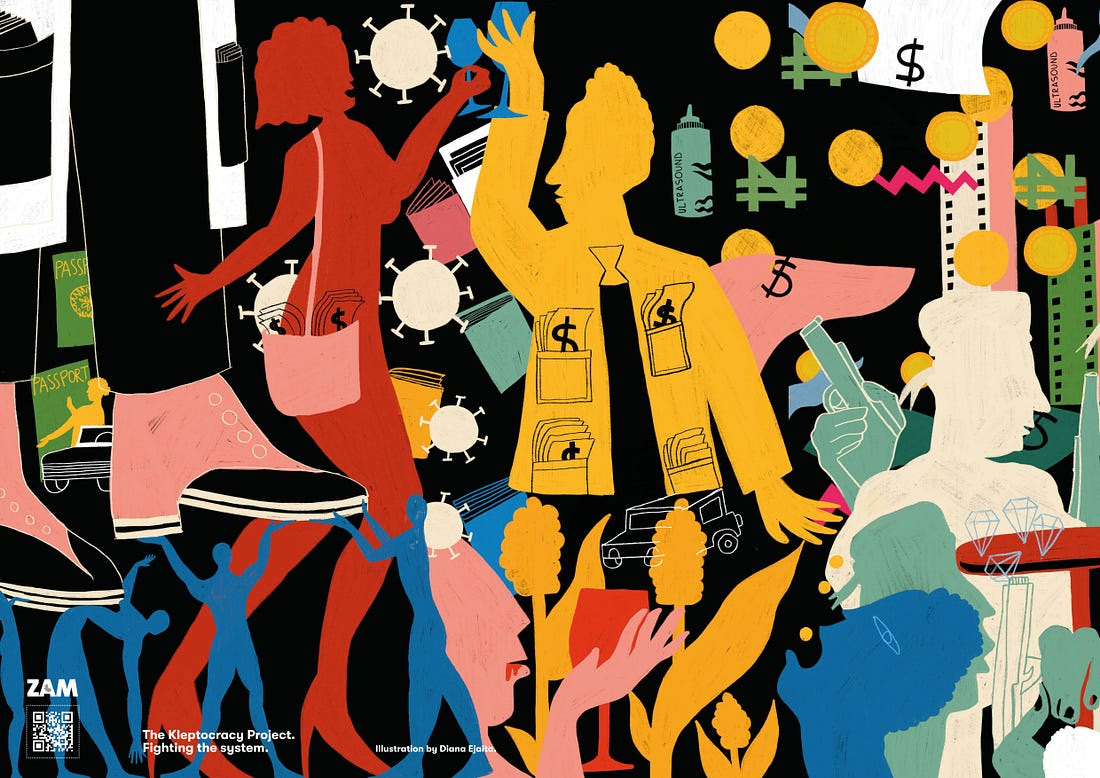KR#10: Lawyers, migrants and Russia’s armyNew investigations and analysis from ZAM and our network.
In this edition of the Kleptocracy Report:
EditorialThe illicit financial flows and the lawyers Lawyers working for kingpins in global corrupt networks “have for at least a decade been pinpointed by anti-corruption analysts as being a lynchpin in the movement of Illicit Financial Flows (IFFs) -including the proceeds of corruption – around the world,” writes Robert Barrington in a new piece for the UK University of Sussex’s Governance and Integrity GI ACE programme. Countering an often-heard justification for those in the legal profession who enable corruption, namely that “any lawyer is obliged to represent any client”, Barrington outlines how this view has been challenged by both legal ethicists and practising lawyers. Part of the counter argument is that the right to have a lawyer work for you is meant to defend from a criminal charge. “Put simply, if a corrupt oligarch were arrested for rape or murder, there is no question they should have a right to legal representation. But the vast majority of kleptocrats and corrupt actors whose funds flow through a global financial centre such as London are not looking for legal protection from a criminal charge. They are trying to protect or maximise wealth which they acquired in corrupt circumstances”, he says, welcoming “cracks” in the old view. “After several years of lawyers trying to close down the thinking that some of their number may be professional enablers of kleptocracy and grand corruption, we may now finally have a debate.” So much for bad lawyers, who are still regrettably under much less fire than the good ones. Together with a large number of journalists, activists and people of integrity generally in South Africa and beyond, we are mourning the murder of Bouwer Van Niekerk, who was shot on 5 September while working on the liquidation of an alleged Ponzi scheme called the NTC Global Trade Fund. “Van Niekerk was the latest victim in a litany of fatal attacks against lawyers, auditors, whistleblowers, public servants and anti-corruption advocates in South Africa in recent years, highlighting once again how at-risk such members of our society are”, wrote Daily Maverick in a commemorative article. Still, the good fight is not without its victories. Veteran Cameroonian barrister Akere Muna has won his case against global trading giant Glencore in a UK court. Glencore was ordered to pay over 11 trillion FCFA, close to US$ 20 billion, for tax evasion and overbilling in oil contracts. Photo XAkere Muna, now a presidential candidate in Cameroon, has been at this case tenaciously in recent years. He recently declared that, if elected, he could replenish Cameroon’s State treasury with 800 billion FCFA, US$ 1, 3 billion, just from oil revenue, in two weeks. Cameroonian news observer Mimi Mefo Info asked pointedly whether Cameroon would “use this victory to fight corruption at home or let it be another missed opportunity?” Lastly, a reminder that we are now able to accept paid subscriptions to the Kleptocracy Report. Our content will remain free to all, but your support can help journalists publish in freedom and help open gateways for democratic change. Read more about our work and funding here. Migrant BattalionOr: how African governments sell young women to Russia (and elsewhere) Design by Sky Walker
A team of ZAM and NAIRE investigated in Kenya, Nigeria, Uganda, Cameroon, Zambia, Malawi and the Great Lakes region how and why young women flock to Russian recruitment channels towards its Alabuga military-industrial zone, 1000 km’s east of Moscow. It found that there is more to it than just false promises. “This is my only escape”, and “better to be exploited in a developed country than where I am now” are some among the many, many comments we came across from passionate applicants who’d still go, even if they have to manufacture drones for the war in Ukraine. But the most shocking findings emerged when tracking African politicians’ involvement. Instead of embarrassment that so many young people are desperately trying to flee the countries they govern, they enthusiastically embrace the exodus, sometimes even accompanying them to Russia. Migrant Battalion Op-Ed: The global threat of Russian recruitment in AfricaInstead of young Africans trading their dreams for a place in someone else’s war, the international community should embrace them, write Migrant Battalion authors Charles Mafa (Zambia), Samuel Baker Byansi (Great Lakes), Elizabeth BanyiTabi (Cameroon), Eric Mugendi and William Moige (Kenya), Josephine Chinele (Malawi), Emmanuel Mutaizibwa (Uganda), Beloved John (Nigeria) and Evelyn Groenink (ZAM investigations editor).
Sudan: elite misrule, external meddling and hungerStarvation in Sudan is not just a symptom, writes William Shoki of Africa is a Country. It is a system. It is the culmination of decades of elite misrule, external meddling, and the strategic governance of hunger. If there is urgency here, it is not only to save lives, but to see clearly the structures that extinguish them.
News from our network
Coming soon:
Stay tuned! ZAM works with investigative reporters in African countries to bring you this content. Please subscribe, preferably paid, to support and enable more ZAM and NAIRE Kleptocracy Reports. |
Investigação
KR#10: Lawyers, migrants and Russia’s army
- by Redação
- 29 de setembro de 2025
- 0 Comments
- 6 minutes read
- 137 Views
- 2 semanas ago

Mais Noticias
Economia, Investigação
Fraca fiscalização alimenta contrabando de pescado e pesca ilegal
21 de março de 2024
Internacional, Investigação
Legal Rebels | Cameroon, Uganda, Nigeria, Malawi & Ghana
1 de maio de 2025












